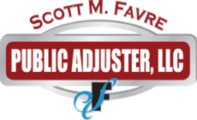What To Do Before a Disaster Strikes Your Business:
- Establish an evacuation plan: Designate primary and secondary evacuation routes and exits for your employees. Make sure that routes and exits are well lit, clearly marked and easily accessible. Create an evacuation plan in advance and designate an outside meeting place where everyone can gather and be accounted for as they evacuate. Include individuals in need of assistance in your emergency preparedness guide.
- Keep an updated list of emergency contact numbers:
- In addition to emergency personnel (fire, hospital, ambulance, police) and disaster relief agencies, include information for customers, suppliers and distributors. Keep an extra copy off site.
- Create an emergency kit: Include essential items such as first aid supplies, flashlights, battery powered radio, tool kit, extra batteries, nonperishable food and bottled water. Make sure the kit is easily accessible during an emergency.
- Protect vital business records: Keep your most important documents in a safe that has been tested and listed by UL (Underwriters Laboratories) as being resistant to fire, heat, burglary tools and torches.
- Create backup copies of critical data and programs: Keep the back-up copies in a location separate from your primary facility.
- Know your risks and prepare: Once you know the types of disasters for which you are most at risk, take steps to minimize potential damage and loss to your building and employees. Try to think of the actions you need to take and everything you might need in case of a fire, flood, severe storm or other disaster.
- Understand your insurance coverage: Review your policy with your insurance agent to make sure you understand your deductibles, the limits of your insurance and the nature of your coverage. There are many different types of coverage, all of which are subject to limitations and exclusions.
- Keep insurance information and contact names and numbers in a safe place: Knowing where to access this information in the event of an emergency will expedite the claim process.
What To Do Before A Disaster Strikes Your Home:
- Organize all your insurance documents and put them in a readily accessible place.
- Review your insurance policies, know what it covers, know what Actual Cash Value and Replacement Cost means and make sure you have the type of coverage you need and want. Be very clear about what the policy will and will not cover, and how the deductibles work (the part you pay before the policy pays).
- Organize all your property ownership documents, including deeds, mortgages, receipts, etc.
- Have your valuables, such as jewelry, fine art, and/or antiques appraised and keep those documents in a very secure location.
- It is imperative to make copies of all these papers – insurance policies, ownership certificates, and appraisal documents of your valuables. You should store the copies in a place other than your home or business.
- Secure your home by covering windows, turn off utilities and move possessions to a safer location if you have adequate warning of something like a hurricane or flood.
- Make sure that you have working smoke detectors near every room in your home. Test them regularly and have escape plans in place.
- Have an alternate power source. A popular option is a generator, but remember you need gas to keep it going.
- Have at least a 2 week supply of food and water for every person in your household.
- Photograph or video tape the entire structure as well as all contents prior to any evacuations. This is critical to supporting your claim right after the disaster.
- Keep a small amount of cash or traveler’s checks at home in a place where you can get at it quickly in case of a sudden evacuation. A disaster can shut down local ATMs and banks. The money should be in small denominations for easier use.
- Have an evacuation plan in place and test your plan.
